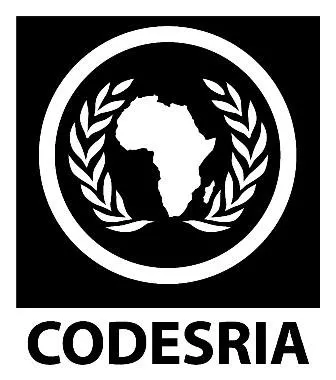CODESRIA Higher Education Policy Initiative (HEPI): Call for Laureates, Resource Persons and Institute Director
Institute on the Role of Middle-level Academics in University leadership
Dates for the institute: 20th- 31st of May 2019
Deadline for submission of applications: 31 March 2019
Venue: Accra, Ghana
Questions and Inquiries: submission@codesria.org
The Council for the Development of Social Science Research in Africa (CODESRIA) invites proposals from middle level academics in African universities to participate in an institute on “Middle-level academics and Academic leadership in African Universities.” The Institute will take place from May 20th – 31st in Accra, Ghana. The Institute is part of a program CODESRIA is implementing with support from the Carnegie Corporation of New York on Higher Education Policy (HEPI)in Africa. The program aims at engaging academics and stakeholders in higher education in Africa on issues and policy directions that can secure greater autonomy of universities in the continent, renew the leadership of the institutions and improve the quality of academic programs by deepening cultures of accountability and oversight.
Middle level academics usually serve as heads of departments, deans of schools and coordinators of academic units. They are not directly involved in senior university management and leadership roles but play an important role in the design and coordination of academic programs and teaching at the departmental and faculty levels. The categories of academics targeted for the Institute include those expected to provide academic guidance and mentorship such as faculty deans, heads of departments, officials of academic unions and course coordinators. Academics at this level perform administrative functions as a result of being appointed and/or elected and therefore serve in both academic and administrative positions. This cadre therefore remains vital in determining the academic orientation and administrative culture of their institutions.
The concerns that the theme of the Institute draws participants to engage with are that the growth in the number of universities and enrolments in the continent has eroded the capacity for institutions to sustain leadership induction practices for these cadre of staff. Increasingly junior academics, even those undertaking their doctoral studies get appointed to academic and administrative leadership positions. Structures such as strong doctoral and post-doctoral programs, faculty academic and administrative mentorship schemes and a strong professorial cadre to provide mentorship and reproduce a new generation of university leaders have either been overwhelmed or collapsed. New universities facing funding pressures have not had the opportunity to establish and entrench such cultures and practices. This has resulted to scarcity in leadership and governance skills in most institutions.
Studies on the governance of universities in the continent have tended to focus on the role of governing councils, Management (vice-chancellor and deputies), and the intermediary role played by ministries of education. Even then, these studies have examined leadership in the context of expanding enrolments and capacity to generate extra financial revenues. What has often been described in the literature as “leadership innovations” have been limited to examining growth in enrolments and institutional revenues. Such literature has documented the “capture” of middle level academics away from their academic work and their emergence as an extension of the university administrative bureaucracy, and a concentration on revenue generating activities at the expense of academic engagements. Missing from the studies is adequate acknowledgement of the role that those academics who do not hold management roles play in the day-to-day leadership of the institutions and especially in shaping the orientation of academic programs. Faculty members serve in governance organs such as faculty boards and senate, which besides being advisory organs for management, also act as recruiting grounds for future institutional leadership. Understanding how faculty members participate in leadership processes, how they engage and are engaged in several aspects of university leadership will contribute to an overall understanding of the processes through which academic and institutional leadership evolves in African universities.
The purpose of the proposed Institute is to provide middle level academics with the platform to engage and deepen academic understanding of emerging cultures in the institutions through which academic and administrative leadership is nurtured. Proposals submitted under this call are expected to be theoretically grounded in the area of higher education leadership and governance, engage with literature on higher education governance transformations in Africa, especially in the post-1990s and show an awareness of current debates in higher education leadership in Africa and the place of leadership in building strong academic institutions.
Academics from universities in Ghana, Nigeria, Kenya, Uganda, Tanzania and South Africa are specifically encouraged to apply.
Application for Laureates
Candidates wishing to participate as laureates should submit Proposals that are no more than 10 pages, typed on 1.5 New Times Roman margins. Proposals should be submitted through the online system which can be accessed via the link Call for Laureates
Other documents to be uploaded alongside the proposal include
- The candidate’s CV and
- A cover letter indicating the applicants’ institutional affiliation and academic/administrative responsibilities.
Application for Director
Those wishing to be considered for the Position of scientific director should be senior scholars theoretically grounded in the area of higher education leadership and governance. The director would be recruited on the basis of a proposal which they submit. The proposal should contain key concepts integral to the understanding of the objective of the Institute. Candidates for the position of Director should also note that if their application is successful, they will be required to:
- participate in the selection of laureates;
- identify resource-persons to help lead discussions and debates;
- design the course for the session, including the specification of sub-themes;
- deliver a set of lectures and provide a critique of the papers presented
- submit a written scientific report on the session.
Applicants for the position of Director should submit:
- An application letter;
- A proposal of not more than 15 pages in length, indicating the course outline, and
- A detailed curriculum vitae
Application for Resource Person
Lectures to be delivered at the Institute are intended to offer laureates an opportunity to advance their reflections on the theme of the institute. Resource Persons are therefore, senior scholars or scholars in their mid-career who have published extensively on the topic, and who have a significant contribution to make to the debates on it. They will be expected to produce lecture materials which serve as think pieces that stimulate laureates to engage in discussion and debate around the lectures and the general body of literature available on the theme.
Once selected, resource persons must:
- submit a copy of their lectures for reproduction and distribution to participants not later than one week before the date of the lecture;
- deliver their lectures and participate in debates
Applications for the position of resource person should include:
- An application letter
- A curriculum vitae; and
- A proposal, not more than five (5) pages in length, outlining the issues to be covered in their proposed lecture.
Candidates or the position of Director and Resource person should submit their applications via the CODESRIA online portal which can be accessed via the link Call for Resource Person and Institute Director






